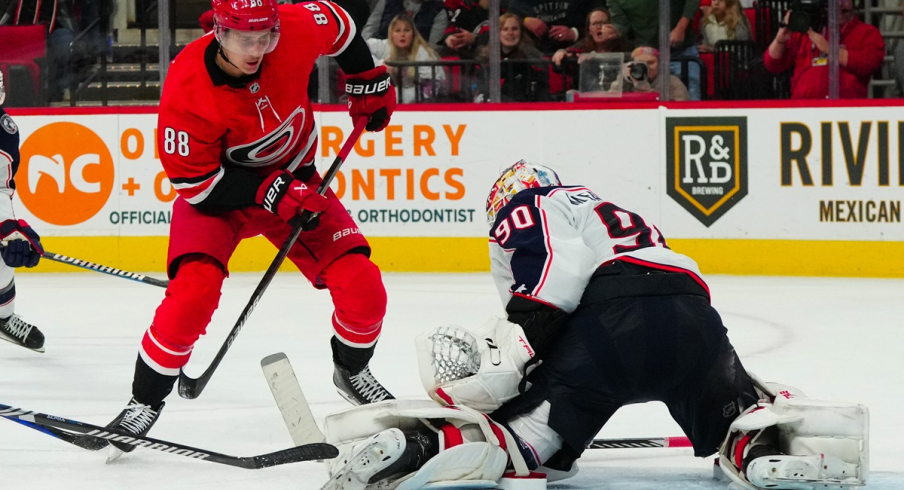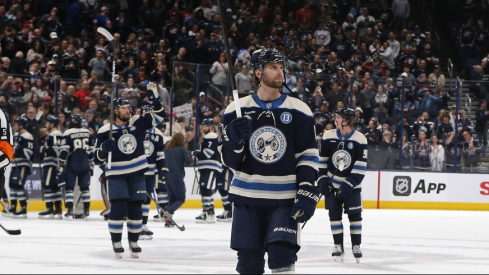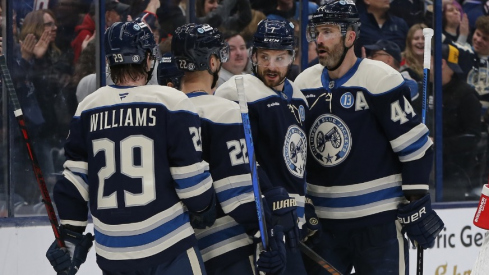Two Sundays ago, the Columbus Blue Jackets held a third-period lead against the Stanley Cup-contending New York Rangers, went into a defensive shell, and held on for dear life.
The Rangers scored the equalizer with 11 seconds left in the game, then defeated the Blue Jackets in a shootout.
Fast forward to this Sunday, and it didn't take a rocket scientist to see what was coming. The Blue Jackets led 2-0 midway through the third period and surrendered three goals in eight minutes to lose to another team with Stanley Cup aspirations. Disappointing, yes. But also "a really good teaching moment", according to Pascal Vincent.
The Blue Jackets played a great hockey game for 50 minutes, then changed the way they played. Similar to a football team dropping into 'prevent defense', the Blue Jackets stopped doing the things that gave them a lead in the first place. Instead of attacking, they retreated. They tried to not lose, instead of going for the win. Shots on goal were 16-7 in favor of Carolina, and somehow, that doesn't begin to do justice to how lopsided the last 10 minutes of the game were in favor of Carolina.
And that's totally understandable, given where this team is in the standings and in their lifecycle. Unlike the Rangers and Hurricanes, this Blue Jackets team lacks the experience and moxie needed to win those games. The thought is there's only one way to learn, and that's through experience. That's what Vincent means when he calls it a "really good teaching moment".
On the other hand, the idea is that players learn from these teaching moments. And it's fair to wonder if that's happening. On the game-winning (er, losing) goal, veteran defenseman Erik Gudbranson made an ill-informed decision to pinch on the boards, letting both the player (Sebastian Aho) and the puck get behind him, which led directly to the 2-on-1 goal. A coach would encourage his defenseman to pinch if he was sure he could win the race, or if he were confident that he could at least break up the play. Neither happened. And the rest is history.
And where players like Adam Boqvist and Cole Sillinger were to blame for the first goal (Sillinger should have been lower in the zone as a center/outlet pass for the puck that Boqvist failed to win in the first place), somehow, that goal is more tolerable. Young players making dumb mistakes. Elvis Merzlikins, who played well enough to win, gave Boqvist a glare after the first goal, as it was clear as day he was at fault.
The optimist would say that games like this are necessary growing pains for a young team learning how to compete against the NHL's elite, and would agree with Vincent that the team would take a good lesson from the experience. A pessimist would say that the team should have learned their lesson two Sundays ago against the Rangers and that yesterday's loss is just more evidence that the team has not learned anything. The truth is probably somewhere in the middle.


